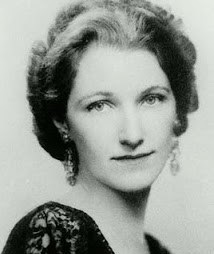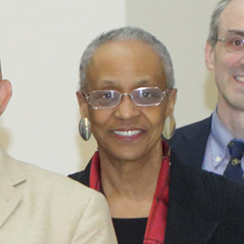Dieting is the practice of eating food in a regulated way to decrease, maintain, or increase body weight, or to prevent and treat diseases such as diabetes and obesity. As weight loss depends on calorie intake, different kinds of calorie-reduced diets, such as those emphasising particular macronutrients, have been shown to be no more effective than one another. As weight regain is common, diet success is best predicted by long-term adherence. Regardless, the outcome of a diet can vary widely depending on the individual.

"Junk food" is a term used to describe food that is high in calories from sugar and/or fat, and possibly sodium, making it hyperpalatable, but with little dietary fiber, protein, vitamins, minerals, or other important forms of nutritional value. It is also known as HFSS food. The term junk food is a pejorative dating back to the 1950s. Many different kinds of junk food can be easily found in most supermarkets and fast food restaurants. Because of such easy access to it, people are most likely to consume it.
Fasting is the abstention from eating and sometimes drinking. From a purely physiological context, "fasting" may refer to the metabolic status of a person who has not eaten overnight, or to the metabolic state achieved after complete digestion and absorption of a meal. Metabolic changes in the fasting state begin after absorption of a meal.

Joel Fuhrman is an American celebrity doctor who advocates a plant-based diet termed the "nutritarian" diet which emphasizes nutrient-dense foods. His practice is based on his nutrition-based approach to obesity and chronic disease, as well as promoting his products and books. He has written books promoting his dietary approaches including the bestsellers Eat to Live, Super Immunity, The Eat to Live Cookbook, The End of Dieting (2016) and The End of Heart Disease (2016). He sells a related line of nutrition-related products.
Calorie restriction is a dietary regimen that reduces the energy intake from foods and beverages without incurring malnutrition. The possible effect of calorie restriction on body weight management, longevity, and aging-associated diseases has been an active area of research.

Phytosterols are phytosteroids, similar to cholesterol, that serve as structural components of biological membranes of plants. They encompass plant sterols and stanols. More than 250 sterols and related compounds have been identified. Free phytosterols extracted from oils are insoluble in water, relatively insoluble in oil, and soluble in alcohols.

Campesterol is a phytosterol whose chemical structure is similar to that of cholesterol, and is one of the ingredients for E number E499.
Intermittent fasting is any of various meal timing schedules that cycle between voluntary fasting and non-fasting over a given period. Methods of intermittent fasting include alternate-day fasting, periodic fasting such as the 5:2 diet, and daily time-restricted eating (TRE).

Ann Louise Gittleman is an American author and proponent of alternative medicine, especially fad diets. She regards herself as a nutritionist. Gittleman has written more than two dozen books and is known for The Fat Flush Plan, a "detox" diet and exercise program that she developed into a series of books. Gittleman's ideas on health and nutrition are regarded as pseudoscience.

Alice Hinda Lichtenstein is an American professor and researcher in nutrition and heart disease. In 2006, Shape magazine named Lichtenstein one of ten "Women Who Shaped the World". In 2019, Tamar Haspel called her a "grande dame of nutrition."

Anne Roe was an American clinical psychologist and researcher who studied creativity and occupational psychology. Her publications included The Making of a Scientist (1953) and the Psychology of Occupations (1956).

Doris Calloway, née Howes was an American nutritionist noted for her studies of human metabolism, role in public health, and food preservation and safety.

Shiriki K. Kumanyika is an Emeritus Professor of Biostatistics and Epidemiology at the Perelman School of Medicine at the University of Pennsylvania and co-chair of the International Association for the Study of Obesity International Obesity Task Force. She has previously served as Associate Dean for Disease Prevention and was founding director of the University of Pennsylvania Master of Public Health. She chairs the African American Collaborative Obesity Research Network. She is the former president of the American Public Health Association.
Kathryn Paige Harden is an American psychologist and behavior geneticist. She is Professor of Psychology at the University of Texas at Austin, where she is also the leader of the Developmental Behavior Genetics lab and the co-director of the Texas Twin Project. She is also a Faculty Research Associate at the University of Texas at Austin's Population Research Center and a Jacobs Foundation research fellow.

Janice K Kiecolt-Glaser is S. Robert Davis Chair of Medicine and Distinguished University Professor at the Ohio State University College of Medicine. She is a clinical health psychologist specializing in psychoneuroimmunology and Director of the Ohio State Institute for Behavioral Medicine Research. Her research on stress associated with caregiving and marital relationships has been featured in The New York Times, The Wall Street Journal, and many other news outlets.
Rachel C. Brown is a New Zealand scientist, professor and deputy head of the Department of Human Nutrition at the University of Otago.
Anne Moscona is an American virologist and pediatrician. She is best known for identifying cell entry mechanisms for enveloped respiratory viruses, elucidating general infection mechanisms that apply to parainfluenza virus, Nipah virus, measles virus, and other viruses, and for applying this knowledge to identify antiviral strategies to prevent infection by viruses including SARS-CoV-2. She is frequently consulted as a medical expert during viral outbreaks, including epidemic and pandemic influenza. Since 2016, she has served as the Sherie L. Morrison Professor Microbiology & Immunology, Professor of Pediatrics, and Professor of Physiology & Cellular Biophysics at Columbia University Medical Center in New York City, where she directs the Center for Host Pathogen Interaction. In 2022, Moscona was elected as president of the American Society for Virology, the nation's leading virology research organization, and will lead the organization starting in July 2023. For the last two years she has served the American Society for Virology as Councilor for Medical Virology.
Susan Crosby Scrimshaw is an American scholar of medical anthropology and university administrator. She served as president of Simmons University, The Sage Colleges, and dean of the School of Public Health at the University of Illinois Chicago.

Paule Valery Joseph is an American nurse and researcher at the National Institute on Alcohol Abuse and Alcoholism. She is the 2022 National Academy of Medicine American Academy of Nursing Fellow.
Nutritional epigenetics is a science that studies the effects of nutrition on gene expression and chromatin accessibility. It is a subcategory of nutritional genomics that focuses on the effects of bioactive food components on epigenetic events.











